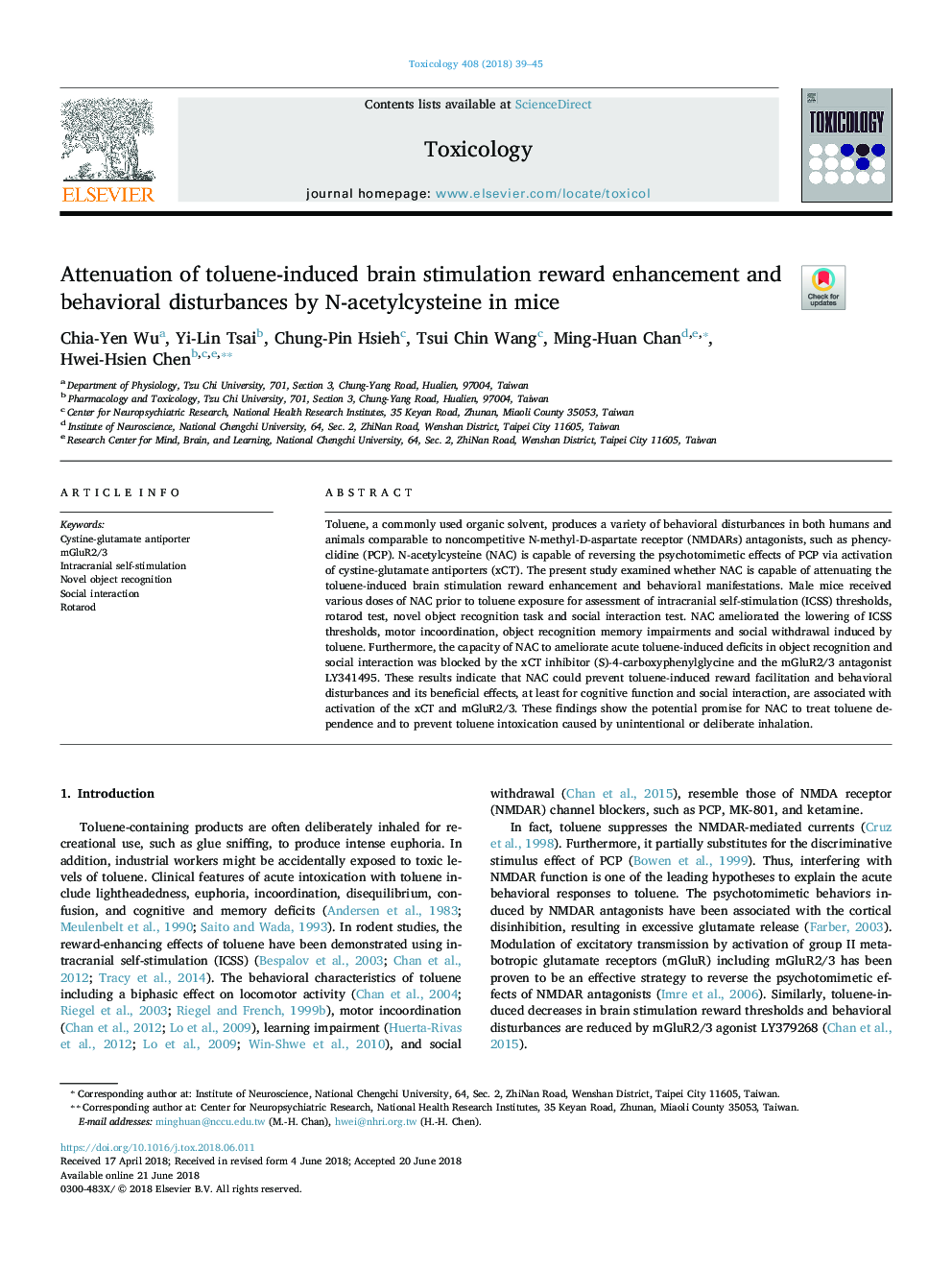| Article ID | Journal | Published Year | Pages | File Type |
|---|---|---|---|---|
| 8552714 | Toxicology | 2018 | 7 Pages |
Abstract
Toluene, a commonly used organic solvent, produces a variety of behavioral disturbances in both humans and animals comparable to noncompetitive N-methyl-D-aspartate receptor (NMDARs) antagonists, such as phencyclidine (PCP). N-acetylcysteine (NAC) is capable of reversing the psychotomimetic effects of PCP via activation of cystine-glutamate antiporters (xCT). The present study examined whether NAC is capable of attenuating the toluene-induced brain stimulation reward enhancement and behavioral manifestations. Male mice received various doses of NAC prior to toluene exposure for assessment of intracranial self-stimulation (ICSS) thresholds, rotarod test, novel object recognition task and social interaction test. NAC ameliorated the lowering of ICSS thresholds, motor incoordination, object recognition memory impairments and social withdrawal induced by toluene. Furthermore, the capacity of NAC to ameliorate acute toluene-induced deficits in object recognition and social interaction was blocked by the xCT inhibitor (S)-4-carboxyphenylglycine and the mGluR2/3 antagonist LY341495. These results indicate that NAC could prevent toluene-induced reward facilitation and behavioral disturbances and its beneficial effects, at least for cognitive function and social interaction, are associated with activation of the xCT and mGluR2/3. These findings show the potential promise for NAC to treat toluene dependence and to prevent toluene intoxication caused by unintentional or deliberate inhalation.
Related Topics
Life Sciences
Environmental Science
Health, Toxicology and Mutagenesis
Authors
Chia-Yen Wu, Yi-Lin Tsai, Chung-Pin Hsieh, Tsui Chin Wang, Ming-Huan Chan, Hwei-Hsien Chen,
